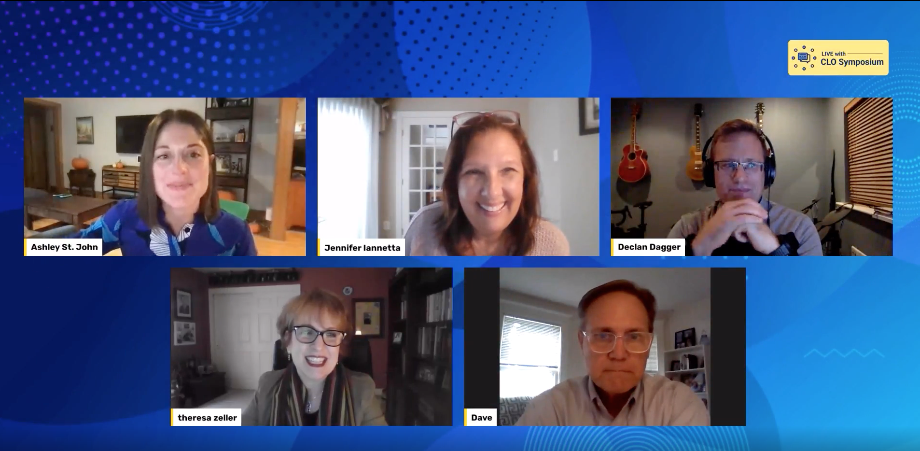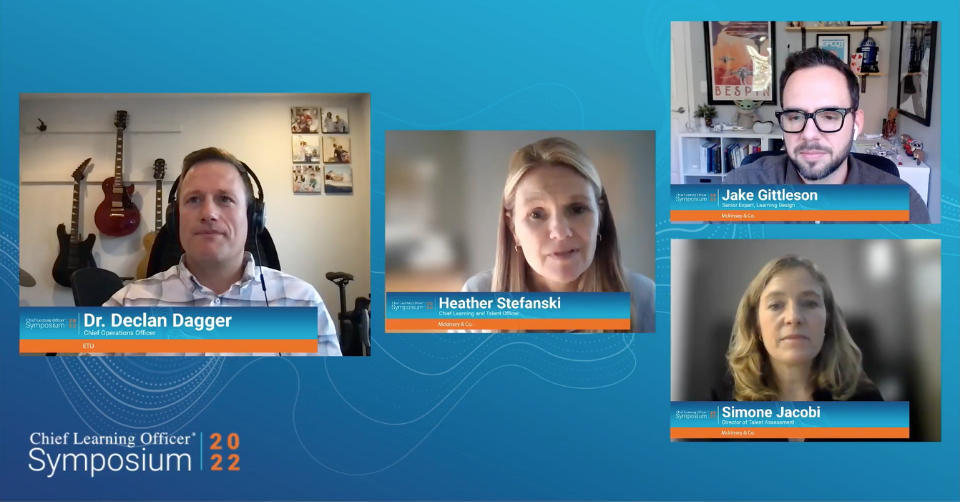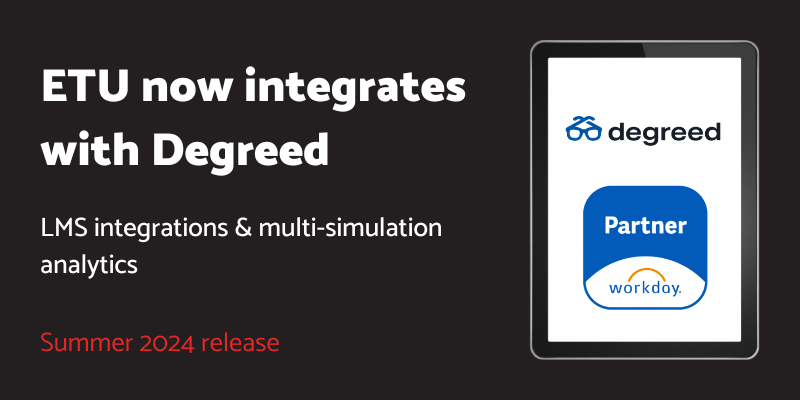
Simulation effectiveness for employee training: Merck & CLO Symposium
Chief Learning Officer's Fall Symposium
An increasing number of learning and development professionals have been utilizing virtual learning simulations as an efficient, learner-embraced delivery tool. As today’s learning leaders evaluate these innovations, however, some core questions emerge: Are learning simulations effective? Can they be easily and cost-effectively adapted for new uses and applications? What are the considerations and components necessary for simulations to be effective?
A survey conducted by Chief Learning Officer, in combination with research from LinkedIn Learning and Accenture, suggests there is ample evidence of simulations’ ability to effectively deliver meaningful, engaging, impactful learning content to virtually any targeted audience. To be successful, though, correct measurement and reporting tools must be incorporated into the simulation structure from the beginning.
Watch these excerpts from the panel discussion at the CLO Symposium, featuring Theresa Zeller and Jennifer Iannetta of Merck & Co. Inc. They shared measured results from their programs and their overall experience and thoughts on immersive simulation effectiveness for employee training.
Jennifer Iannetta, Lead Learning Architect MMD, Integrated Learning Experience at Merck talks to Ashley St. John at CLO Symposium about the results from the use of ETU Immersive Simulation with an Aseptic Simulation project.
Jennifer explained how the learning analytics gave them strong quantitative behavioral data about the proof of value from immersive simulation training. The data enabled the L&D team to become more efficient and save time on behalf of their employees.
This was invaluable for communication with other leaders. Those stakeholders could see that with immersive simulations, their teams could be trained faster, giving employees time back to do their work.
By switching from a 3-hour classroom session to a 12-minute simulation, employees were trained 15X faster, while at the same time delivering a 13% improvement in behavioral outcomes.
Employee engagement data also showed improvement, as learners felt that the simulations were relevant and worth their time. 91% saw the value of this type of learning and would recommend it to others.
Theresa Zeller, Global Head of Integrated Learning Experiences at Merck talks to Ashley St. John at CLO Symposium about the results from ETU Immersive Simulation on a Softs Skills project at Merck.
Theresa also reported considerable improvements, seeing a 27% average performance improvement among leaders following the use of leadership development simulations for their employee performance consulting.
Their client-facing teams saw a massive 41% performance improvement.
The learning analytics also gave them extremely valuable new data on common mistakes, leading to useful conversations between leaders on the root causes of these errors.
As a leading global science and technology company, creating a culture of inclusivity and supporting talent is a priority for Merck.
Theresa Zeller, Global Head of Integrated Learning Experiences at Merck talks to Ashley St. John at CLO Symposium about the results from the use of ETU Immersive Simulation for their Diversity, Equity and Inclusion project at Merck.
One of the learners stated: "It gave me a deep understanding of how my responses, or lack thereof, affect the productivity and culture of my team, leading to repercussions affecting my organization's goals and growth".
Theresa Zeller, Global Head of Integrated Learning Experiences at Merck and Jennifer Iannetta, Lead Learning Architect MMD, Integrated Learning Experience at Merck talk to Ashley St. John at CLO Symposium about their experience with Immersive Simulation and working with ETU.
Theresa and Jennifer had both seen the promise of immersive, scenario-based simulation with data. They saw the benefit of learners being able to practice and make mistakes in a safe environment, in order to then learn and grow. They saw the promise of leveraging quantitative data around behavior change.
A testing and measuring phase was successful in proving those expectations to be correct. When rolled out, the immersive simulations reduced seat times considerably across Leadership, DE&I, and other areas of behavior change. The powerful learning analytics gave valuable insights for subsequent training content improvements.
Huge improvements across all three of the stakeholder key metrics of Speed, Employee Engagement and Context-Relevant Behavior Change led to the simulation training program being accelerated across the organization.
Jennifer Iannetta, Lead Learning Architect MMD, Integrated Learning Experience at Merck talks to Ashley St. John at CLO Symposium about the use of the Simulation Builder from ETU and the authoring experience for Instructional Designers.

